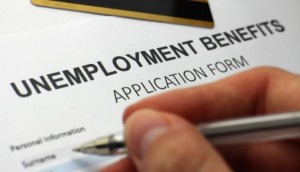UNEMPLOYMENT BENEFITS DURING COVID-19 OUTBREAK
 Since April 2020, the Michigan Unemployment Insurance Agency has been accepting applications for the broadest category of potential recipients under federal law reforms related to the COVID-19 pandemic. Workers defined as “self-employed” or otherwise defined as independent contractors are able to claim unemployment benefits as a result of the federal disaster relief package known as the CARES Act. And workers who ran out of benefit weeks after January 1, 2020 will be able to re-qualify for additional benefits weeks up to 39 weeks of total benefits. Under the December 2020 supplemental stimulus package, those benefits may now extended up to 50 weeks for claimants still unemployed in 2021.
Since April 2020, the Michigan Unemployment Insurance Agency has been accepting applications for the broadest category of potential recipients under federal law reforms related to the COVID-19 pandemic. Workers defined as “self-employed” or otherwise defined as independent contractors are able to claim unemployment benefits as a result of the federal disaster relief package known as the CARES Act. And workers who ran out of benefit weeks after January 1, 2020 will be able to re-qualify for additional benefits weeks up to 39 weeks of total benefits. Under the December 2020 supplemental stimulus package, those benefits may now extended up to 50 weeks for claimants still unemployed in 2021.
Click here to visit the State Website to Apply for Michigan Unemployment Benefits
Am I Eligible for Pandemic Assistance or Other Unemployment Benefits?
Unemployment benefits are available to individuals “considered to have left work involuntarily for medical reasons” if that individual leaves work for any of the following reasons:
- The individual is under self-isolation or self-quarantine in response to elevated risk from COVID-19 due to being immuno-compromised.
- The individual has displayed at least one of the principal symptoms of COVID-19, which are a fever, atypical cough, and atypical shortness of breath.
- The individual has had contact in the last 14 days with someone with a confirmed diagnosis of COVID-19. Contact for the purposes of healthcare exposures is defined as follows: a) being within approximately 6 feet (2 meters) of a person with COVID-19 for a prolonged period of time, without appropriate personal protective equipment consistent with Department of Health and Human Services recommendations; or b) having unprotected direct contact with infectious secretions or excretions of the patient (e.g., being coughed on, touching used tissues with a bare hand).
- The individual is required to care for someone with a confirmed diagnosis of COVID-19.
- The individual has a family care responsibility as a result of a government directive.
On October 20, Governor Whitmer signed Senate Bills 886 and 991, codifying her previous Executive Orders regarding unemployment benefits. An analysis of the laws can be found here. The bills also extended some but not all of the emergency fixes contained in the Governor’s invalidated executive orders.
- The Bills extend unemployment benefits for workers from 20 to 26 weeks until the end of the year.
- The Bills reinstate the requirements that an individual must be actively seeking employment.
Michigan UIA COVID-19 related layoff information
Will I Still Qualify for Unemployment Benefits if I Can’t Return to Work Yet?
A growing number of workers are being called back to work after COVID-19 related layoffs. What if your workplace is not complying with COVID-19 workplace safety guidance? What if your own medical condition or caregiver responsibilities make you unable to return to the workplace? The Unemployment Agency has issued new guidance in the form of Q & A related to return-to-work demands and your right to continued benefits.
[Michigan workers concerned with workplace safety, medical leave or accommodations, or other COVID-19 related issues can access additional resources here.]
How to File for Unemployment Benefits
The Unemployment Insurance Agency has a series of how-to videos to help navigate the unemployment system and assist you with filing a claim. View the full playlist of videos for employees here.
Watch the Pandemic Unemployment Assistance video here.
National Employment Law Project (NELP) Summary of Covid-19 Related Unemployment Benefits
NELP: COVID-19 Resources for Frontline Workers and the Unemployed
For employers managing workplace changes, the Michigan Unemployment Agency is encouraging business to use of the workshare program (allowing employees with reduced hours to qualify for supplemental benefits) and other temporary furloughs as an alternative to permanent layoffs.
For more technical details on implementation of Pandemic Unemployment Assistance and related programs, the Department of Labor has Issued guidance to the States in the form of UI Program Letters.
Non-Monetary Determination Issues
Many unemployment claimants have had claims held up under for so-called “non-monetary determination pending” flags. This typically occurs when the claimant has voluntary left previous jobs in the base period even though they were fired or laid off from their most recent job. As of May 6, 2020, Executive Order 2020-76 relaxed this standard so that delayed benefits could be released. Unfortunately, Michigan legislature did not extend this fix beyond October 20, 2020.
New Supplemental Unemployment Benefits?
Claimants on unemployment benefits in January – March 2021 are expected to receive a new $300 supplement per week for up to 11 weeks under the Supplemental Stimulus Package. Basic unemployment benefits in Michigan pay a maximum of $362 per week and that amount has not changed in nearly 20 years. Under the CARES Act, Benefits that provided an additional $600 per week to unemployment checks expired at the end of July 2020. In August 2020, President Trump issued an Executive Order that resulted in a $300 weekly supplement to benefit weeks for Michiganders who were unemployed in August. But that supplement ran out quickly. Although some critics of the supplemental benefits have claimed that the supplements discourage working, a recent study out of Yale University shows that these benefits have not been a disincentive for people to return to work. Michiganders want to work. Supplemental unemployment benefits have provided a safety net for Michigan’s unemployed workers.
